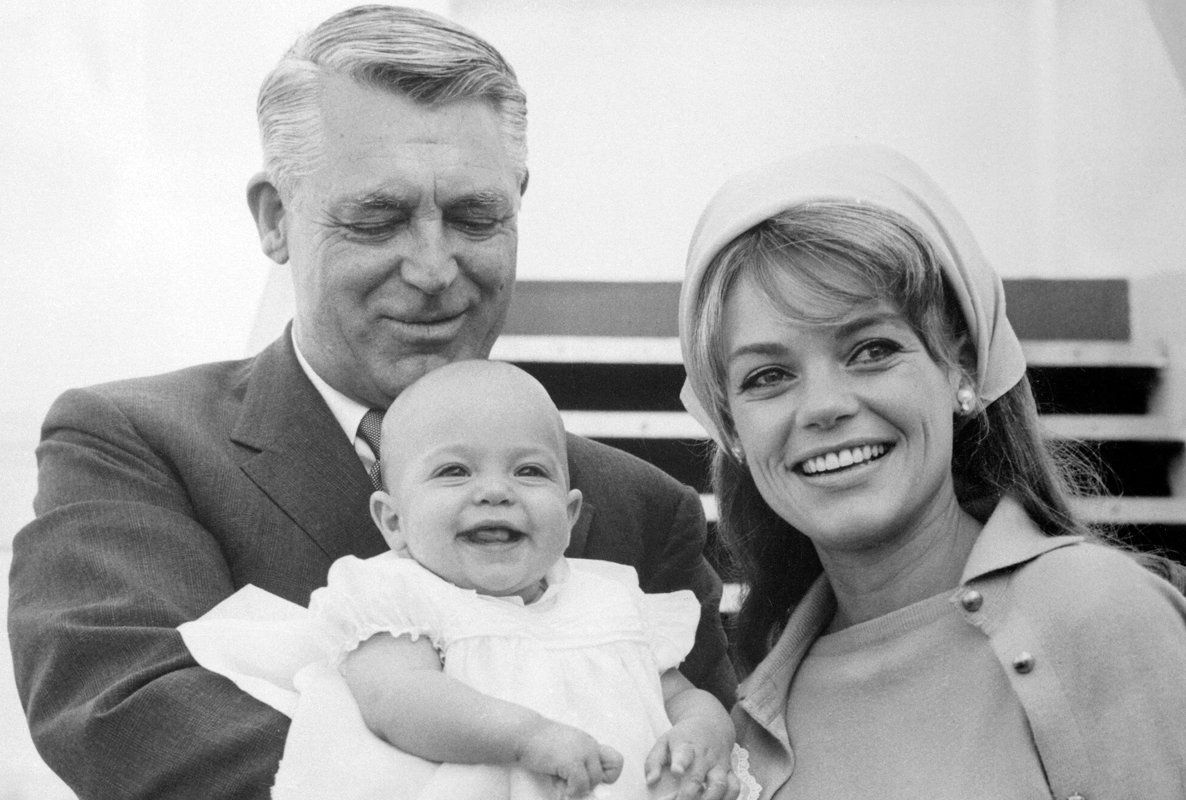
Cary Grant was not perfect. Now we know. In her memoir, Good Stuff, his daughter, Jennifer, reveals that he was always grumpy for several days before he traveled or before he had to make a public appearance. He liked Benny Hill. Oh, and he snored. Loudly.
So much for the bad news. The delightful Good Stuff is the polar opposite of Mommie Dearest. Cary Grant at home was more or less the same man the public saw in movies: debonair, decent, and funny. By the time she was old enough to know him, Jennifer says in a phone interview, "he'd shaped himself into the person he was comfortable being." The line between public icon and loving father was no line at all.
Jennifer was Grant's only child. He was 62 when she was born in 1966 (her mother was his fourth wife, Dyan Cannon), and at that point he retired from film. His final role, which he played until his death 20 years later, was fatherhood. According to his daughter, he gave it everything he had. He taught her to ride a bike and a horse, they shared hot dogs at Dodgers games—OK, while sitting in the owner's box; nobody said this was a normal childhood. (Some of the book's best moments focus on this wonky blend of everydayness and privilege, as when she sits down to play Operation with Princess Stephanie at the palace in Monaco.) But if Daddy treated her like a princess, he didn't want her thinking like one. "At my birthday parties, Dad insisted that we give each guest their own gift to open. 'What … they're all just going to sit there and watch you open your presents? Fat chance department!' " Her childhood allowance was a dollar a week, and she had an 11:30 p.m. curfew until she was 20. Later on, his advice about her love life proved saltily practical: "Don't marry the guy you break the bed with."
The consummate doting dad, he captured everything from bath time to story hour on film and audiotape, saved her soap sculptures and her tea set, archived her childhood doodles, and preserved his notes to her. Preparing to write her book, Jennifer reviewed the material for the first time several years ago. "He did LSD to remember the past," she writes. "I do archives."
She uncovered no dark secrets. "He was such a happy father," she says. "Hearing his whistling on the tapes, the lilt in his voice—he was more tender than the Cary Grant of film. He was softer, sweeter." And maybe a little more melancholy than a child could recognize. Jennifer, after all, was the product of a broken home, her parents having divorced when she was 2. She spent her childhood shuttling between them. "Dad often filmed passersby from his deck" at his Malibu house, she writes. In one scene, "Mom and I briefly walk by at a distance. Doubtful anyone besides a trained expert would catch it, I'm surprised I did … but seeing the Super 8 gave me a sense of his loneliness. His longing."
It was one more thing to share. Jennifer wryly notes that "to some extent every little girl sees Daddy as Cary Grant." But when Cary Grant is Daddy, things can get mighty confusing. "I guess that's what still pisses me off about seeing him in films," she writes. "There he is, the star, Cary Grant. Everyone is able to retain that part. The part of him they knew still exists." Good Stuff is a convincingly sunny tribute to a father, but the grown-up child's longing for a departed parent haunts almost every page. Can you blame her?
Uncommon Knowledge
Newsweek is committed to challenging conventional wisdom and finding connections in the search for common ground.
Newsweek is committed to challenging conventional wisdom and finding connections in the search for common ground.
About the writer
To read how Newsweek uses AI as a newsroom tool, Click here.








